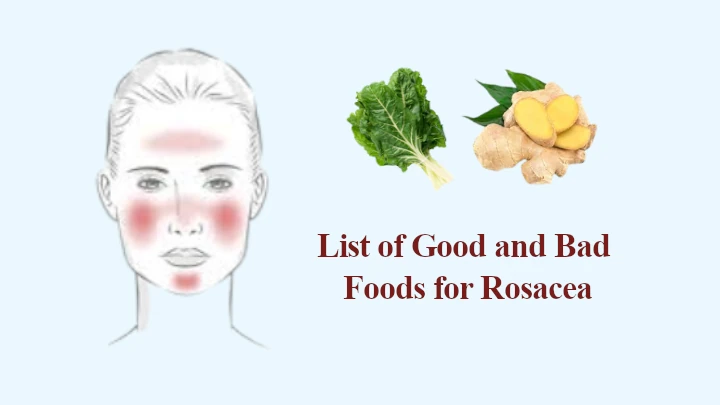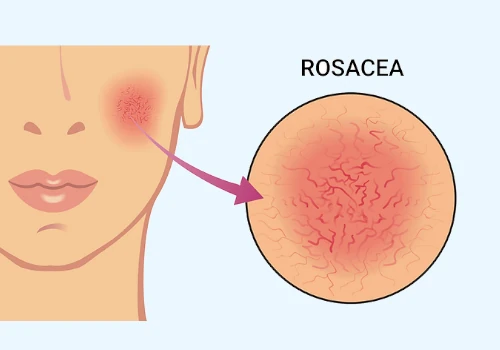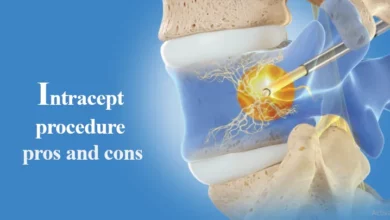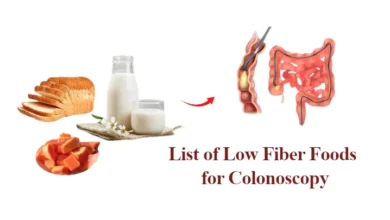15 List of Good and Bad Foods for Rosacea

Many of you must be curious about list of good and bad foods for rosacea. Millions of people around the world suffer from the common skin condition rosacea. Although the root cause of rosacea is unknown, it is believed to be linked to inflammation and the dilation of blood vessels in the face. While some foods may cause or worsen rosacea symptoms, others may have anti-inflammatory or antioxidant properties that may be helpful for those who suffer from this condition.
In this post, we’ll explore 15 list of good and bad foods for rosacea to help you make informed choices about your diet and potentially manage your symptoms.
In This Article
List of Good and Bad Foods for Rosacea

Here is the list of good foods for Rosacea:
1. Leafy greens
Leafy greens like spinach, kale, and collard greens are beneficial for rosacea because they are full of antioxidants like vitamins A, C, and E, as well as flavonoids and carotenoids.
Free radicals, unstable molecules that can inflame your skin and harm its cells, are harmful to your skin, but antioxidants help defend against them.
2. Fatty Fish
Salmon, mackerel, and tuna are examples of fatty fish that are considered beneficial for rosacea because of their high omega-3 fatty acids, which have anti-inflammatory qualities.
The body’s inflammatory response is an essential factor in the appearance of rosacea, and the omega-3 fatty acids present in fatty fish can assist the body in fighting this response.
3. Turmeric
A bioactive substance called curcumin, found in the spice turmeric, has been shown to have anti-inflammatory properties. One of the primary causes of rosacea symptoms like redness, flushing, and swelling is inflammation. Curcumin, a component of turmeric, can reduce rosacea symptoms by lowering inflammation.
4. Oatmeal
Due to its soothing and mild nature, oatmeal can help calm irritated skin, making it a healthy food for rosacea. It is also abundant in anti-inflammatory substances like avenanthramides and beta-glucans, which might help lessen the redness and itching caused by rosacea.
5. Probiotics
Probiotics are beneficial bacteria that live in your gut and help support a healthy immune system. While the exact relationship between gut health and rosacea is not fully understood, research suggests that people with rosacea may have an altered gut microbiome compared to those without the condition.
6. Ginger
Ginger tea is good for rosacea because of its ability to reduce inflammation, ginger is considered a healthy food for rosacea. Rosacea is a long-term inflammatory condition that reddens the skin, causes flushing, and occasionally produces tiny red bumps on the face.
The anti-inflammatory effects of ginger’s components, gingerols, and schools have been shown. These substances may help in lowering rosacea-related redness and inflammation.
7. Green Tea
Drinking green tea is good for rosacea due to an abundance of antioxidants known as polyphenols, particularly epigallocatechin gallate (EGCG), green tea is a good food for rosacea. These antioxidants’ anti-inflammatory and anti-redness properties can lessen rosacea-related inflammation and redness.
8. Garlic
Garlic is good for rosacea because it has anti-inflammatory properties, garlic is a good food for rosacea. Consuming anti-inflammatory foods, such as garlic, may help lessen the symptoms of rosacea, which include redness and swelling, which are largely caused by inflammation.
Bad Foods for Rosacea
What foods can make rosacea worse? Here is the list of bad foods for rosacea:
9. Spicy foods
Because they can cause flushing and increased blood flow to the face, spicy foods are frequently regarded as rosacea-trigger foods. This may exacerbate rosacea-related redness and inflammation, making symptoms worse.
The chemical capsaicin, present in hot foods like chili peppers, can release histamines into the body, leading to flushing and aggravating rosacea symptoms.
10. Alcohol
Alcohol is thought to be bad for rosacea because it can cause or make the condition’s symptoms worse, especially redness and flushing.
Drinking alcohol can dilate blood vessels, which increases the amount of blood flowing to the face and exacerbates the appearance of redness and flushing in rosacea sufferers.
11. Citrus fruits
Some rosacea sufferers may be affected by citrus fruits as a trigger. This is due to citric acid in citrus fruits, which can irritate the skin and cause inflammation and flushing.
12. Soy sauce and vinegar
Soy sauce and vinegar are potentially bad for rosacea because they contain high levels of histamines. Histamines are chemicals released by the immune system in response to an allergen or irritant, and they can cause inflammation, redness, and itching in people with rosacea.
13. Processed Foods
Processed foods can worsen rosacea symptoms because they frequently contain high concentrations of preservatives, artificial colors, and other additives that can irritate the skin.
These additives have the potential to aggravate skin irritability, inflammation, and flushing, which can exacerbate rosacea’s redness and other symptoms.
14. Dairy Products
Dairy products are sometimes considered bad for rosacea because they contain proteins that may trigger inflammation and worsen symptoms in some individuals. Specifically, dairy products contain two types of proteins, casein, and whey, which can cause an immune response and trigger inflammation in some people.
15. Tomatoes
Because tomatoes contain histamines, they might worsen rosacea symptoms for some people. Histamines, which are organic chemicals produced by the immune system, influence inflammation and allergic reactions. Consuming histamine-rich foods can make some rosacea sufferers flush, red, and swollen.
Conclusion
In conclusion, Rosacea triggers, and symptoms vary from person to person. However, eating a diet high in anti-inflammatory foods like fruits, vegetables, and whole grains may help some people with rosacea reduce inflammation and improve symptoms. On the other hand, some foods described above may cause or worsen rosacea symptoms in some people.
Be sure to read
References
- Diet and rosacea: the role of dietary change in the management of rosacea
- Relationship between rosacea and dietary factors
- (PDF) An epidemiological overview on Rosacea disease





